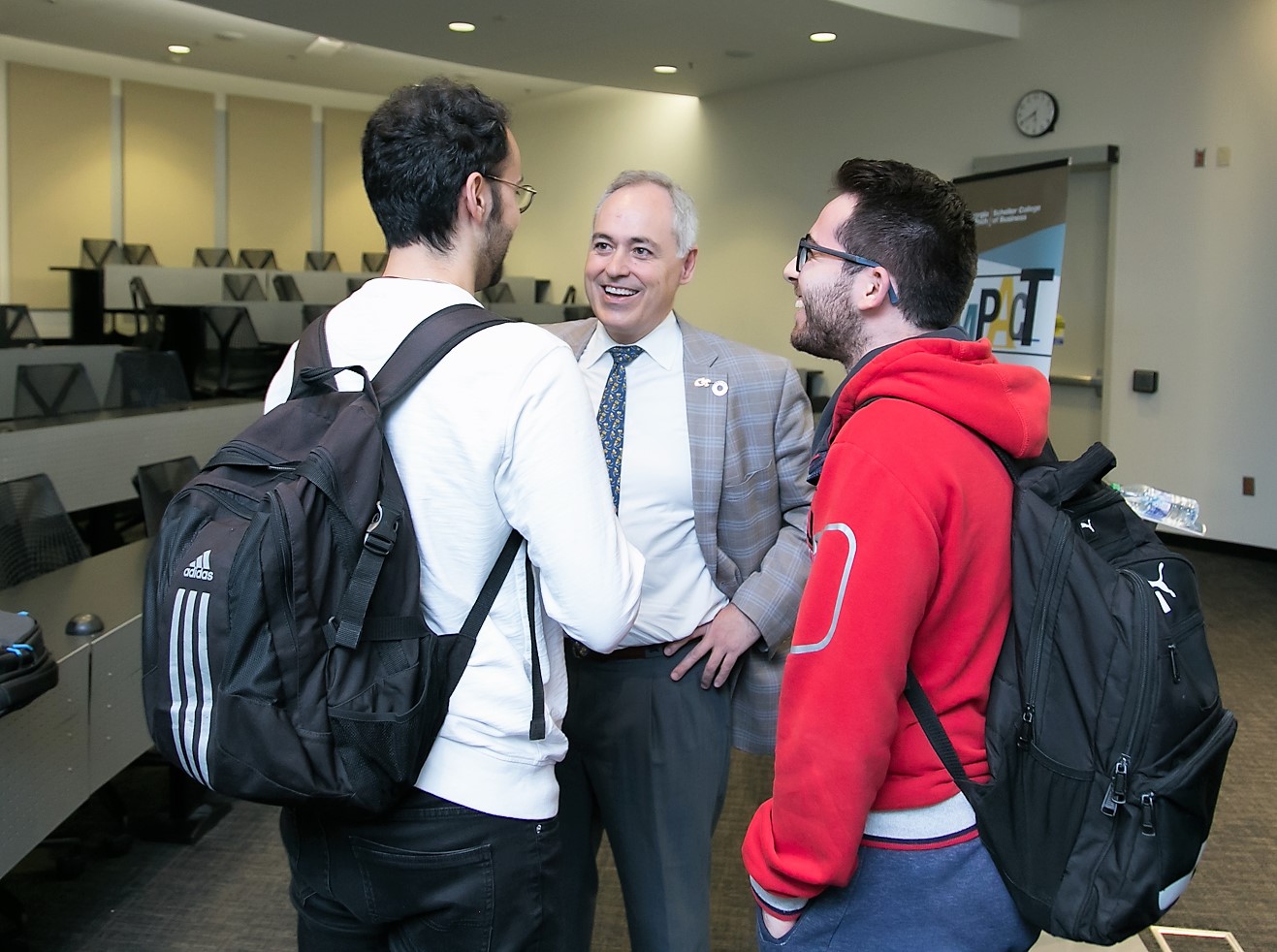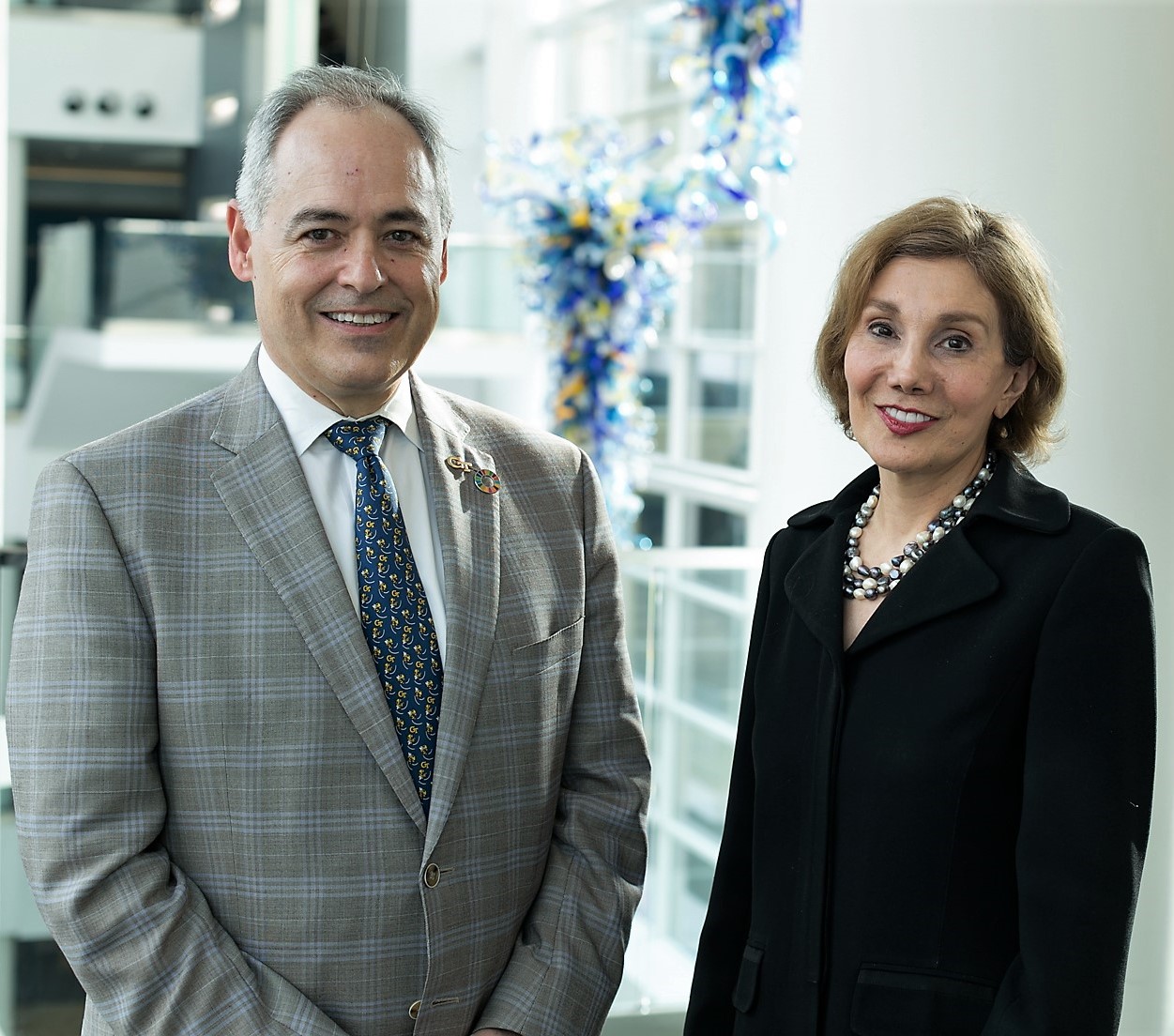At a packed crowd of Scheller College of Business and Georgia Tech students, faculty and staff, President Ángel Cabrera delivered a compelling talk about the globalization of business and leadership as he recounted historical events that changed the way the world conducts business in the past and how globalization is leading the future of business.
The special event, sponsored by the Institute for Learning and Entrepreneurship (ILE) at Scheller College as part of their IMPACT Speakers series, kicked off with an overview of ILE and the EXCEL program by Terry Blum, founding director of ILE and EXCEL programs, and Tedd Munchak Chair in Entrepreneurship. Blum invited Beril Toktay, professor of Operations Management, Brady Family Chairholder, and founding faculty director of the Ray C. Anderson Center for Sustainable Business to talk about the reciprocity between ILE and the Center for Sustainable Business and the work the Center is doing on behalf of corporate sustainability.

Terry Blum (from left), President Cabrera, Dean Alavi, Beril Toktay
Dean Maryam Alavi was introduced by Toktay and took the stage to welcome audience members and introduce President Cabrera who, among his various leadership roles throughout his career, was the President of the Thunderbird School of Global Management at Arizona State University.
In his talk “Global Leadership for a Better World,” Cabrera described how the world has changed in just over 150 years, reminding the audience that no matter how fashionable it might be to look at the past with nostalgia, the truth is that the world before and during the 1800s provided little opportunity for advancement in society or commerce. Economic growth, he said, emerged only when countries started trading with one another across nation-states and equated this rapid growth with two factors; technology, which included the Industrial Revolution, and global trade.
Lead with a passion for doing something that is going to create value to those around you.
Technology diffusion continued and “constant innovation would be the ultimate source of advantage,” he said, noting the partnership between research and industry began when MIT opened its doors in 1865 and Georgia Tech followed 20 years later. “The partnership of research and competitiveness is very real,” he said and the largest companies today are U.S. technology companies like Apple, Microsoft and Alphabet who’ve used innovative research to corner market share.
“All companies have strong ties to research universities,” he said. It is the exchange of ideas between researchers and businesses on a global scale that is helping to create global business leaders of today. As the co-author of “Being Global: How to Think, Act and Lead in a Transformed World,” Cabrera proposed three types of skills required to become a global leader; mindset, entrepreneurship, and citizenship and said that “global entrepreneurs are not just able to get along with others, but to figure a solution that didn’t exist before.”
It is not enough to seek profits, he said, but to seek out ways to contribute to society. He advised the audience to “advance technology and lead businesses that create value and make a difference in everybody’s lives.” His final words of advice to students were to be idealistic and look for ways to improve the lives of others. “Lead with a passion for doing something that is going to create value to those around you,” he said. The event ended with a Q&A session followed by a reception attended by the President and First Lady, Dr. Beth Cabrera.

